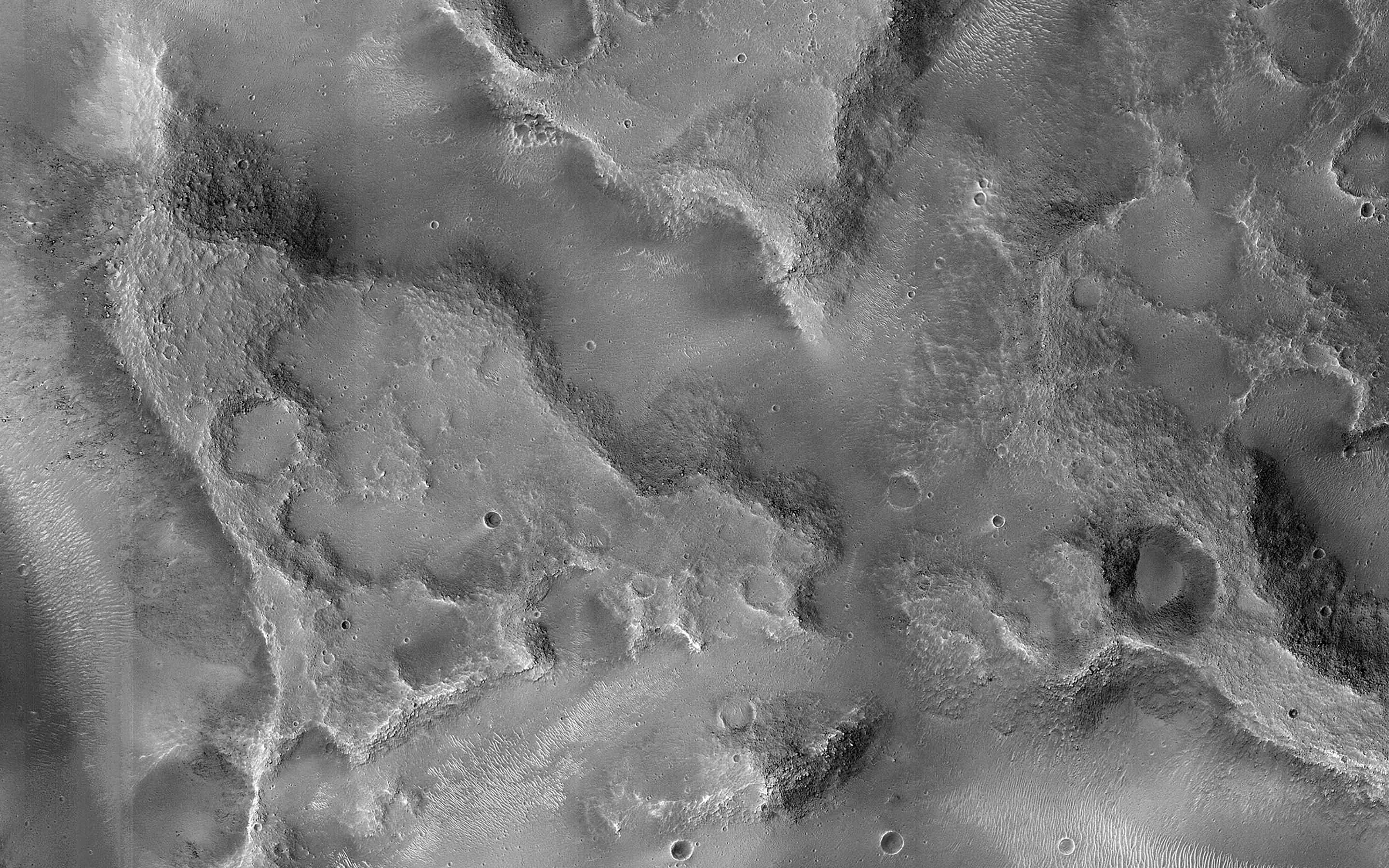
|
Fractured Blocks on a Crater Floor
- Click the image above for a larger view
- Full-Res JPEG (2880 x 1800) (1.1 MB)
- Full-Res TIFF (2880 x 1800) (5.2 MB)
Caption:

Map Projected Browse Image
Click on image for larger version
This crater in Xanthe Terra is filled with material deposited by wind or water after the crater formed. The material later fractured into discrete flat blocks.
This fracturing may have occurred due to collapse over a subsurface cavity from where ground water evacuated, or under a sub-ice lake.
The map is projected here at a scale of 50 centimeters (19.7 inches) per pixel. (The original image scale is 53.0 centimeters [20.9 inches] per pixel [with 2 x 2 binning]; objects on the order of 159 centimeters [62.6 inches] across are resolved.) North is up.
Background Info:
The University of Arizona, in Tucson, operates HiRISE, which was built by Ball Aerospace & Technologies Corp., in Boulder, Colorado. NASA's Jet Propulsion Laboratory, a division of Caltech in Pasadena, California, manages the Mars Reconnaissance Orbiter Project for NASA's Science Mission Directorate, Washington.
Cataloging Keywords:
| Name | Value | Additional Values |
|---|---|---|
| Target | Mars | |
| System | ||
| Target Type | Planet | |
| Mission | Mars Reconnaissance Orbiter (MRO) | |
| Instrument Host | Mars Reconnaissance Orbiter | |
| Host Type | Orbiter | |
| Instrument | High Resolution Imaging Science Experiment (HiRISE) | |
| Detector | ||
| Extra Keywords | Color, Crater, Map, Water | |
| Acquisition Date | ||
| Release Date | 2021-01-29 | |
| Date in Caption | ||
| Image Credit | NASA/JPL-Caltech/University of Arizona | |
| Source | photojournal.jpl.nasa.gov/catalog/PIA24388 | |
| Identifier | PIA24388 | |
